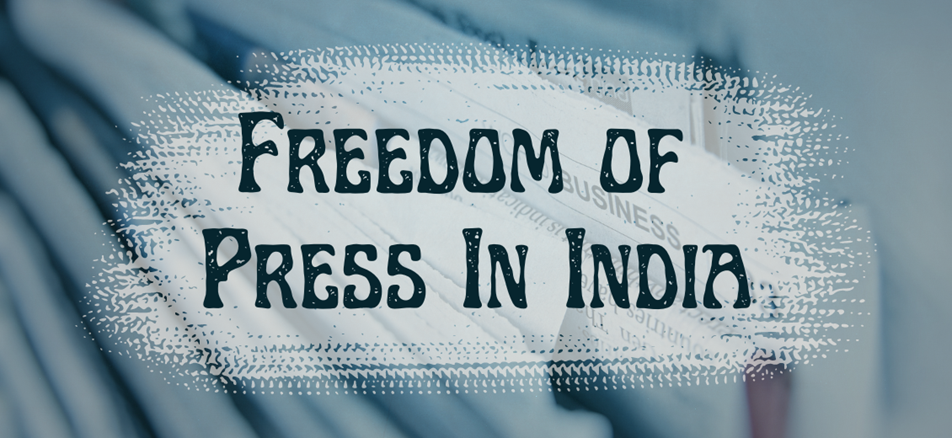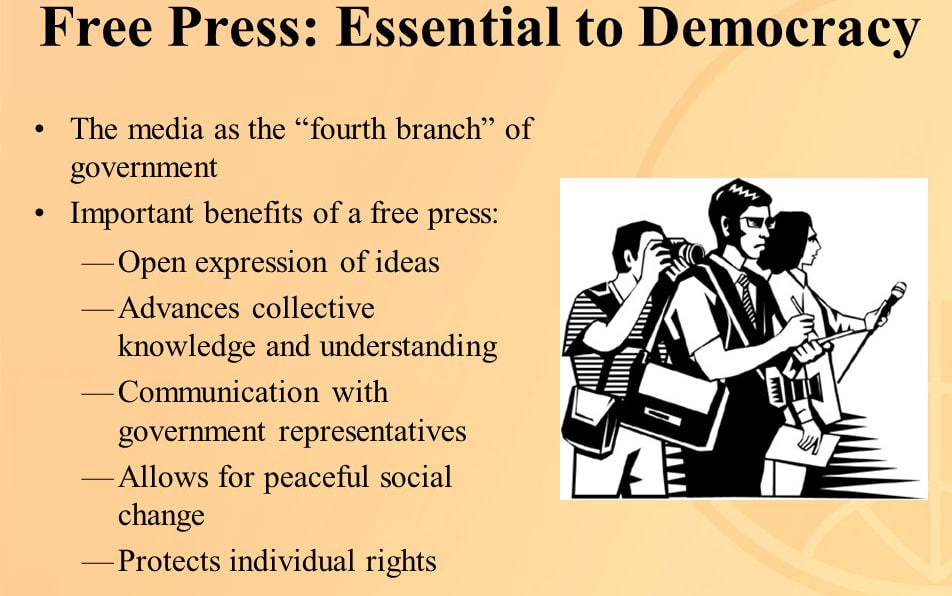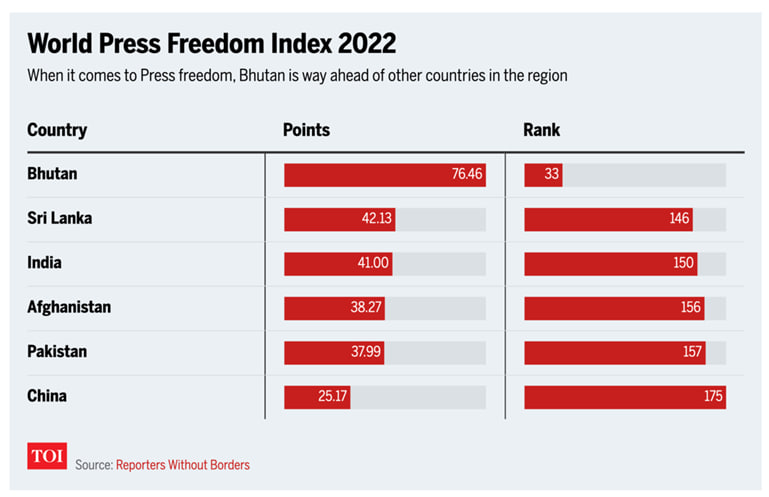Description

Copyright infringement not intended
Context: The Supreme Court has lifted a telecast restriction on a Malayalam station, ruling that the unguided and ad hoc use of sealed covers violates natural justice and open justice.
Highlights of the Supreme Court Verdict
- The Supreme Court of India stated that the state's dependence on sealed covers to authenticate its activities in court has eroded constitutional rights and procedural guarantees of a fair hearing.
Media Freedom
- The Court ruled that critical views concerning government policy are not anti-establishment. The usage of such terms reveals an assumption that the press must assist the establishment... A free and independent press is essential for the democratic republic to function properly.
- The court stated that the press has a responsibility to speak truth to power and provide solid facts to citizens... A unified viewpoint on matters ranging from socioeconomic policy to political beliefs would endanger democracy.

Sealed cover
- While acknowledging the Supreme Court's power to "secure confidential material in a sealed cover" under Rule 7 of the Supreme Court Rules of 2013, the CJI noted that the state's frequent reliance on sealed covers to validate its actions in courts has reduced constitutional rights and procedural guarantees of a fair hearing under the law to "dry parchment."
Public Interest Immunity
- In dealing with state requests for anonymity, the Supreme Court developed the "less restrictive" public interest immunity (PII) claims processes as an "alternative" to the sealed cover proceedings.
- In the alternative PII procedures, the court would consider the 'public interest' of the data the state wishes to keep secret.
- Even though the PII procedures would be held in a "closed sitting," a reasoned ruling approving or rejecting the state's PII claim should be issued in open court.
- Even if a PII claim is successful, the court may choose to amend sensitive elements of the document or release a summary of the contents of the papers to both parties. The court may keep the censored sections.
Amicus curiae’s role
- The court would appoint amicus curiae to "balance the concerns of confidentiality with the need to maintain public faith in the objectivity of the justice delivery system."
- The amicus would acquire access to the information sought to be kept secret by the state and would represent the interests of those fighting for the material's disclosure.
Intelligence Reports
- The Court questioned the government's position that it could conduct investigations or gather intelligence on civilians and then claim blanket immunity from disclosure in court.
- According to the Court, intelligence agencies' reports influence the lives, liberty, and professions of persons and entities, and giving such reports unlimited exemption from publication is contrary to an open and responsible society. It is one thing to claim that intelligence reports may contain classified material, but it is quite another to argue that all such reports are confidential. Such an argument is inappropriate and cannot be recognised as a constitutional benchmark.
Security
- The court said that the administration frequently invoked the threat of national security in a "cavalier manner" to justify withholding material from the other parties.
- The state is using national security as a weapon to restrict individuals' legal recourse... 'National security' concerns cannot be drawn up out of thin air. According to the Chief Justice, such a conclusion must be supported by material.
.jpeg)
Freedom of the Press
About
- The freedom of the press or media refers to the rights granted by the Indian Constitution in Article 19(1)(a) regarding freedom of expression. It encourages independent media and democracy by allowing citizens to express their support or opposition to the government's activities.
- Article 19 was brought to light after the Romesh Thappar versus State of Madras case underlined the necessity of media as the essential foundation of all democratic organisations. But, it recognised the 'public safety and public order' under Article 9 (1-A) and dismissed the complaint.
- In India, press and media freedom are highly recognised. It does have acceptable restrictions under Article 19(2).
- Article 19, reads, "Everyone has the right to freedom of thought and expression, including the freedom to hold opinions without interference and to seek, receive, and impart information and ideas through any medium and regardless of boundaries."
Rights of Media
- Freedom of the Press is nowhere mentioned in the Constitution. It is believed to be covered under Freedom of Speech and Expression under Article 19. Hence, the rights of a common citizen are the same as the rights of a media or press house.
- The media has certain rights to challenge the government and showcase the issues gaining rapid attention from the people through various media sources and houses. Some rights are:
- Defamation and free press
- Expression and free speech
- The right to publish and distribute
- The right to obtain information
- Right to conduct interviews
- The right to report judicial proceedings
- The right to advertise
Restrictions on Media
- There are certain restrictions in Article 19(2) to protect the nation and its integrity. The restrictions can be imposed in case of threats against;
- Sovereignty and integrity of India
- Security of the State
- Friendly relations with foreign states
- Public order, decency or morality
- Contempt of court
- Defamation
- Incitement to an offence

Why is press freedom so vital in India?
Free exchange of ideas
- The press encourages individuals to look beyond social norms and provides a forum for people all across the country to discuss ideas and opinions.
Ensure Accountability
- People frequently attempt to cover up their behaviour and resolve a matter without involving the media. The press brings such circumstances to light and ensures that justice is delivered appropriately with the support of the general public.
People's voice
- The press acts as the channel through which the mass of ideas are written and spoken. It focuses on topics that are silenced and bring to light those that should be discussed.
Fourth democratic pillar
- As the media is an independent body that questions the government, it might be considered the fourth pillar of democracy, alongside the judiciary, legislative, and executive branches.

What is the situation of the press today?
- Even while there has been considerable improvement since the days when "freedom of the press" could be assessed, the situation is still not very favourable. In recent years, there have been several examples of hate crimes, false allegations, prosecutions owing to inaccurate depictions, fake news, and so on.
Fake News
- We have all been victims of fake news, which has become so widespread that we assume it to be true.
Paid News
- As journalism and news reporting are low-paying jobs for the majority of media persons, some professionals frequently post fake news in exchange for cash.
Media Bias
- High-paying criminals and politicians frequently buy media corporations to cover their 'good' and philanthropic moments. This biases the viewer, particularly when it comes to elections.

Must Read Articles:
Press Freedom: https://www.iasgyan.in/daily-current-affairs/press-freedom
Sealed Cover Jurisprudence: https://www.iasgyan.in/daily-current-affairs/sealed-cover-jurisprudence-2
|
PRACTICE QUESTION
Q. India was placed 150th out of 180 nations in the Press Freedom Index 2022. The report emphasised how criminal prosecution, particularly sedition, is widely utilised to harass journalists. Freedom of the press is a fundamental principle that no government should compromise. Discuss the role of free media in democracy. Do you believe that Indian media is free?
|

https://epaper.thehindu.com/ccidist-ws/th/th_delhi/issues/31436/OPS/G63B3108H.1.png?cropFromPage=true














